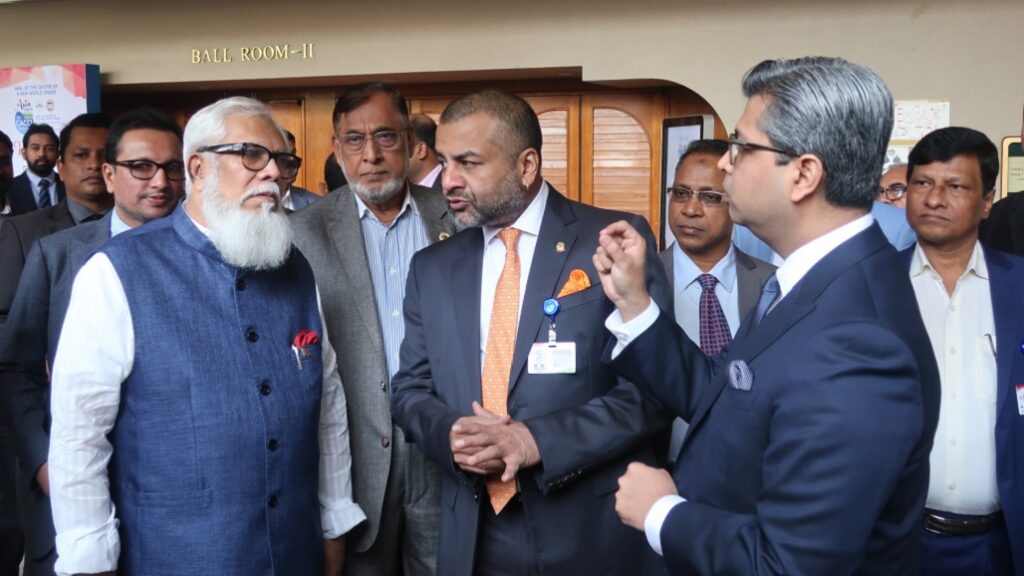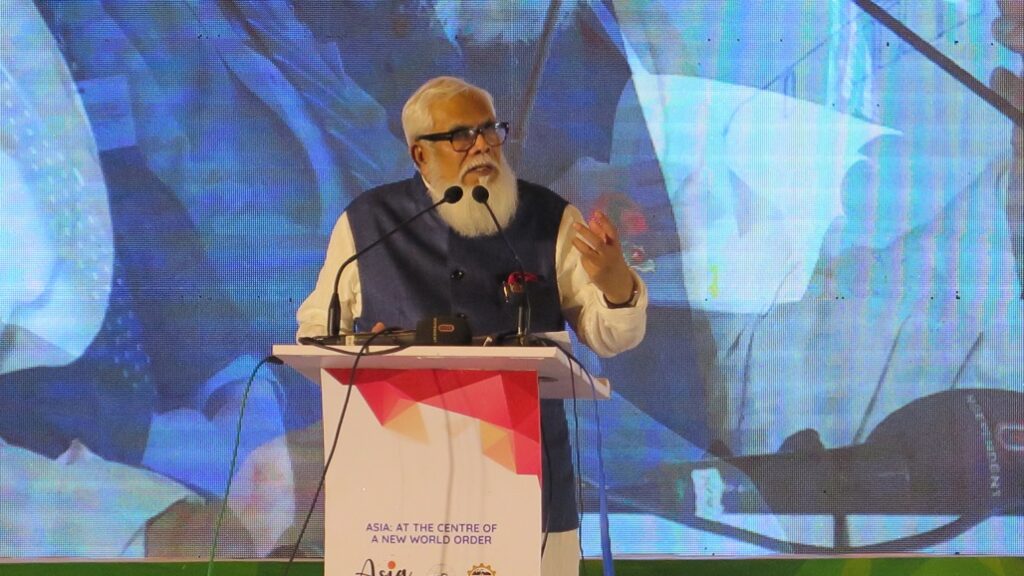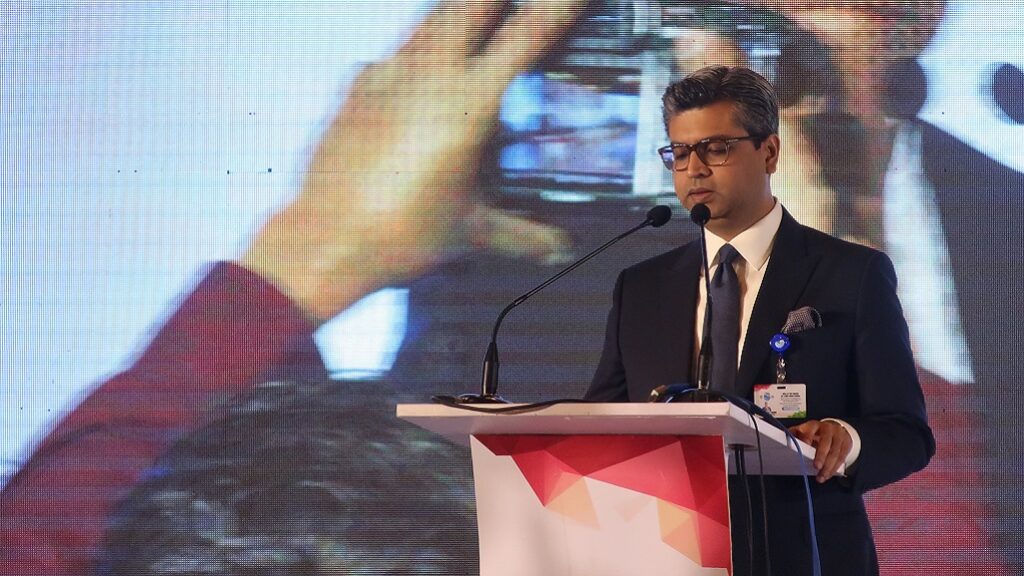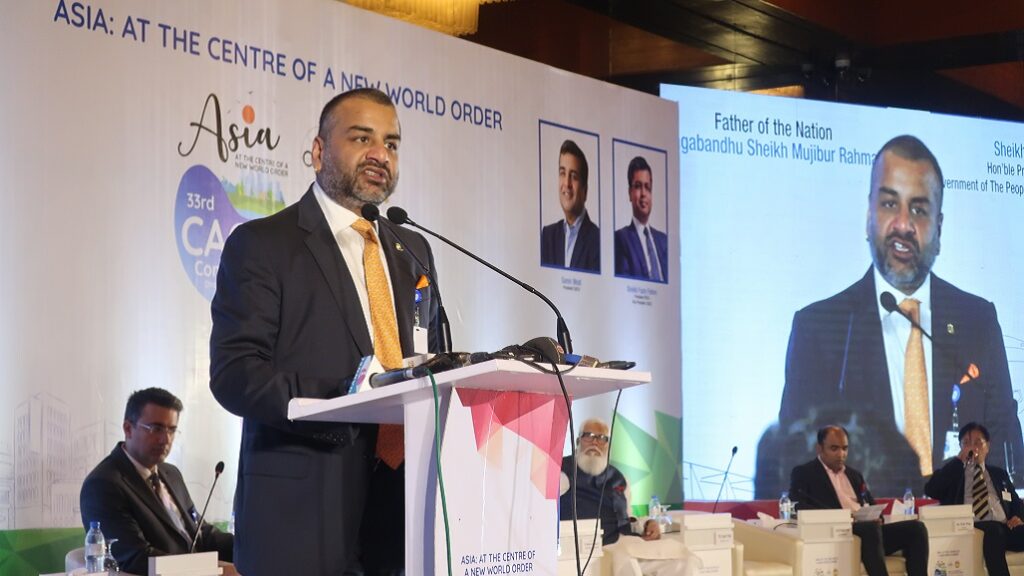Asia: At the Centre of a New World Order



In his Welcome Remarks, FBCCI President Mr. Fahim noted that the country’s economy has been stable and its micro-economic growth has been in an upward trajectory. He also mentioned that FBCCI has been addressing crucial issues of the transitional economy including knowledge transfer for the third industrial revolution (3IR) to the fourth industrial revolution (4IR), artificial intelligence (AI), regulatory planning, SDG goals, industry-academia gap assessment, re-skilling and technology transfer.
He said that Bangladesh had one fo the most liberal and flexible investment regimes in South Asia and made it to World Bank’s list of “Top 20 Improvers of Doing Business in 2020”, pointed out that net FDI Inflow to Bangladesh in fiscal year 2017-2018 by 67.94% to US$3.61 billion over the US$2.15 billion in previous (2016-17) fiscal. He pointed out that, with Bangladesh at the cusp of the next growth trajectory, the country considers CACCI members to be an important strategic partner augmented by positive trends for greater business engagements and cooperation in multiple sectors.
In addition to diversifying business with existing trade partners. Bangladesh hopes to explore with private sectors of CACCI member countries to engage on each other’s strengths in investment, trade and knowledge while adding value to the country’s constituents and environment.

CACCI President Mr. Samir Modi in his Opening Statement, pointed out that in a short span of time, Bangladesh has become one of the world’s economic success stories, with major contributions from the ready-made garments industry, remarkable agricultural production and infrastructural development. Moving forward, Mr. Modi continue: First, a vibrant civil society; Second, a strong sense of community volunteerism; and third, the dynamism among the youth. Looking at the region as whole, Mr. Modi noted that the new globalization presents steep challenges for Asia.
However, he expressed confidence that, with effective leadership, the region is i a strong position to make the needed transition and capitalize on the new opportunities. He also pointed out that for the economic opportunities and gains of the new globalization t be shared widely among Asian citizens and businesses of all sizes, it remains as urgent as ever for governments to maintain progress in integrating their markets and to develop common rules and norms.







